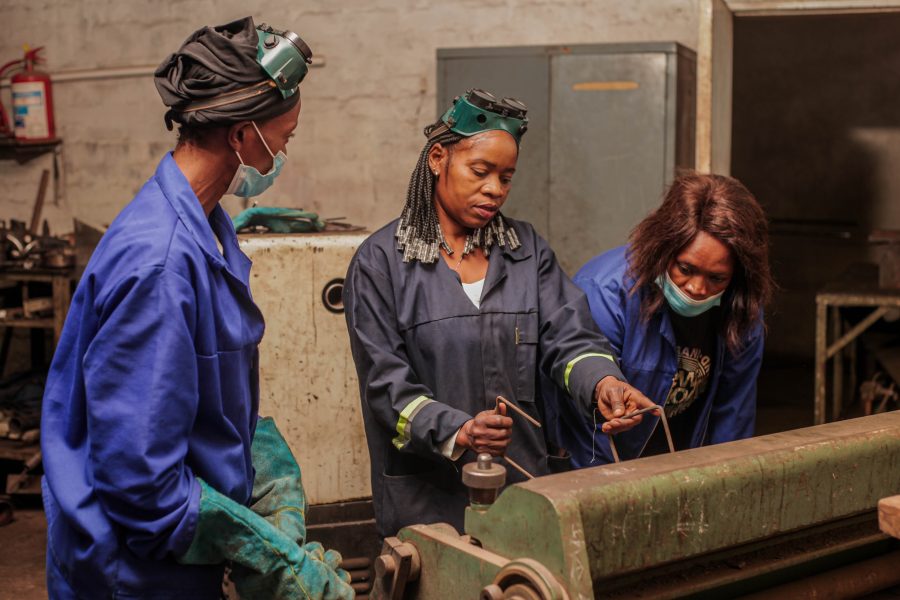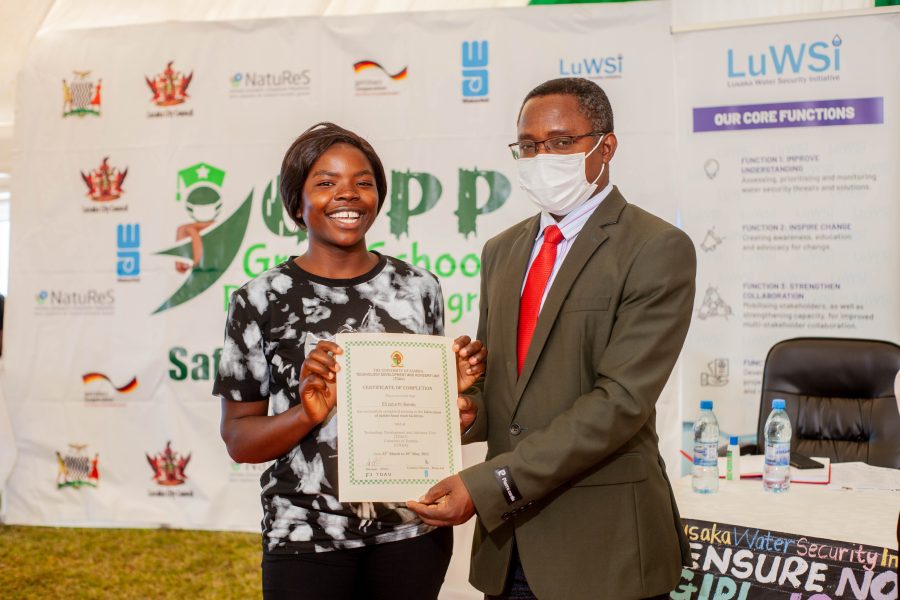Empowering women entrepreneurs to mitigate consequences of Covid-19 in Lusaka, Zambia

Handwashing as one of the most effective protective measures against Covid-19 has received unprecedented attention during the past two years of the pandemic. Twenty women-led community enterprises from low-income communities of Lusaka have therefore been trained and certified in the fabrication of handwash stations. Since many people’s livelihoods, especially women, have been and still are adversely affected by the pandemic, the training empowers the women entrepreneurs aged between 18 and 45 to meet the community’s needs for handwashing stations by offering a Jumbo Hand Wash fabrication and maintenance service while improving economic opportunities for their own local businesses.
The 11-week intensive training process led by technicians from the University of Zambia was completed in May 2022. It was conducted under the Safe back to School (SB2S) Campaign, a project supported under the Natural Resources Stewardship Programme (NatuReS) in collaboration with Lusaka City Council, the Zambian Ministry of Education, the Ministry of Health, WaterAid, the University of Zambia (UNZA) and other partners under the Lusaka Water Security Initiative.

The SB2S campaign supports the implementation of prevention and control measures to enable learners and teachers return to school in a safe environment during the Covid-19 pandemic. This is done through improving knowledge of key hygiene behavior for Covid-19 prevention in schools and surrounding communities, improving Covid-19 multi-sectoral coordination in Lusaka District and enhancing accountability and reporting mechanisms. The project also provides handwash facilities, waste bins and hygiene items to schools.
The Natural Resources Stewardship Programme (NatuReS) supports multi-stakeholder partnerships to sustainably manage natural resources and provide direct and effective support to prevent the spread of the Covid-19 pandemic, mitigate its impacts and build more resilient cities and communities for future outbreaks of communicable diseases. The NatuReS programme collaborates with partners such as Lusaka City Council, Ministry of Education, Ministry of Health, WaterAid, UNZA and other partners under the Lusaka Water Security Initiative
Author: Sonile Mutafya, NatuReS Advisor Zambia